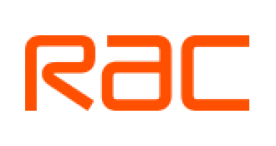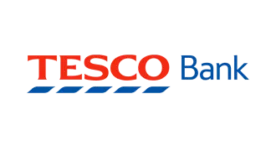Compare business loans between £1,000 – £5,000,000
We help small businesses and sole traders find the right funding – fast.
- Tell us a bit about your business and how much you need.
- Instantly see loan options you’re eligible for.
- Go straight to the lender – no repeating forms or details.
Apply today and get matched with trusted lenders ready to support your growth.

Business Loans
Compare Business Loans
Business loans are designed to provide the funding your business needs. Whether you’re looking to manage cash flow, buy equipment or wanting to grow, finding the best business loan for you is key.
Choosing a business loan means matching the right type of finance to your business’s requirements and goals. If you have a small business or startup, your priorities, challenges and targets are likely to be different than for a larger business that has been up and running for a while.
There are many trusted business lenders to choose from and plenty of loan options on offer. Some types of business finance will be more suitable, and accessible, to you than others. Understanding your business needs is essential, and taking time to compare different business loans, and what they can offer, is a must.
What is a business loan?
A business loan gives you the opportunity to borrow funds to help your business grow, improve cash flow, or get a new venture off the ground. There are several different types of business loans available, including loans specifically for sole traders, startups and limited companies. The one that will be right for you depends mainly on your business, the reason you need the loan and the amount you want to borrow.
How do business loans work?
Most business loans are similar to personal loans in that funds are borrowed from a lender, and the loan then needs to be paid back, plus interest, over a certain period of time.
Regardless of the loan you choose, the application, approval and repayment process tends to work in much the same way:
- Check your eligibility
Many providers offer tools which let you check your eligibility in a couple of clicks. As well as saving you time, this also reduces the risk of an unsuccessful application, which could damage your business credit score.
- Apply
If you pass the eligibility check, you can apply. If you do this online, you could get a decision in a few minutes, which you can then choose to accept or decline.
- Receive the funds
If you accept the offer and sign the paperwork, you could receive the money into your bank account within a day or two. However, some types of loans, such as startup loans, can take much longer.
- Repay over time
The amount that you borrow, plus interest, must be paid back in regular instalments over an agreed period of time. This loan term is often several years – some loans can be repaid over 25 or 30 years. Or if you want a short-term loan, some lenders offer terms of six-to-12 months. There may be the option to repay earlier if you wish. Once all the repayments have been made, your debt will be cleared.
How to get a small business loan through NerdWallet UK
We can help you find the best small business loans for you and your business. You’ll also be matched with lenders from our panel that offer you the best chance of acceptance. To see the funding options open to you, without affecting your credit score:
- Answer a few questions about you and your business, so we know what to look for.
- Get matched instantly with suitable lenders and loans that you’re eligible for.
- Compare loans and apply to your chosen provider, with forms pre-filled using details you’ve provided already.
» COMPARE: Find the right loan for your business
Different types of business loans – and which could suit you
Unsecured business loans
Best for: Businesses that need quick access to finance or are experiencing rapid growth.
- Can can be taken out without having to use any assets from your business as security for the loan.
- They are often quicker to arrange, but interest rates may be higher.
- Lenders may also ask for a personal guarantee that you’ll be personally liable to repay the loan if your business can’t.
» COMPARE: Unsecured business loans
Secured business loans
Best for: Asset-rich businesses that need a large amount of capital.
- A secured business loan can only be taken out if you’re willing to put forward an asset from your business as security, such as your business premises or a piece of equipment.
- You can usually borrow larger sums of money and access lower interest rates than you would with an unsecured loan.
- There’s a risk that the lender will repossess the asset used as collateral if you fail to make the repayments.
» COMPARE: Secured business loans
Startup loans
Best for: Businesses that are new or have been trading for less than three years.
- A startup loan can provide the funds to buy equipment, stock or business premises, as well as covering day-to-day costs and salaries.
- Unlike equity financing, a startup loan allows you to retain full control of your business.
- Gives you the opportunity to build your business credit history, making it easier to access funding in the future.
» COMPARE: Startup business loans
Sole trader business loans
Best for: Business owners who are self employed, freelancing or contracting.
- Lenders will require proof of your business’s financial stability, including bank statements, tax returns and a business plan.
- As there is no legal separation between you and your business you will be personally liable for the debt.
- Your personal credit score will be taken into consideration when making your application.
» COMPARE: Sole trader loans
Short-term business loans
Best for: Quickly raising funds that you want to pay back in one-to-two years, maximum.
- This can be a quick way to access funds. Many lenders will approve your application within minutes – often sending funds within a day or two.
- The application process is usually straightforward, doesn’t require extensive paperwork, and can typically be completed online.
- This type of loan may be available to businesses with a poor credit history, but often have higher interest rates than longer-term loans.
» COMPARE: Short-term business loans
Limited company loans
Best for: Businesses registered as a limited company with Companies House.
- It’s sometimes easier to access funds as a limited company.
- By taking out a loan in the company’s name, the business is liable for the debt, not the owner personally. This protects your personal finances.
- Interest paid on the loan can often be a tax-deductable expense for your company.
» COMPARE: Limited company business loans
Bad business credit loans
Best for: Businesses or company owners with poor personal or business credit scores.
- Although it’s possible to get a business loan with bad credit, there will be fewer options to choose from.
- If your business has a poor credit rating simply because you haven’t been trading for long enough to build one, it may be possible to get a startup business loan, provided your personal credit score is good.
- Interest rates are likely to be higher than on other types of business loans, and you may need to sign a personal guarantee to agree that you will repay the loan if your business can’t.
» MORE: Bad credit business loans
Cash flow loans
Best for: Providing short-term funds to cover unexpected costs or a seasonal downturn.
- These unsecured loans are often based on your estimated future revenue, which means lenders are more interested in your past and predicted performance than your credit score.
- Cash flow loans are designed for short-term use, and will need to be repaid in less than 12 months.
- They will usually carry higher interest rates and fees than other types of business loans.
» COMPARE: Cash flow loans
Asset financing
Best for: Spreading the costs of expensive equipment that your business can’t afford to pay for upfront.
- You can take out asset finance through a finance provider, an equipment provider / manufacturer, or a broker.
- There are several different types of asset finance. Some work like hire purchase, allowing you to pay for an asset over time. Others involve the lender buying the asset outright, then renting it to your business. Depending on the type of agreement, the lender may also cover maintenance costs.
- Depending on the type of contract, you may find yourself in a situation where you pay for an item that you never end up owning.
» MORE: Asset finance
Business Owner Insights
“I took out a Virgin StartUp Loan in 2019 as I needed £12,000 to get a bespoke website designed and built. The application process was quick and easy, and I was able to access the full amount. I wouldn’t have been able to launch such an ambitious project without the loan, which I finished paying off last year.”
Susan Bonnar, founder of The British Craft House
Am I eligible for a business loan?
In order to qualify for a business loan, you will usually need to be at least 18 years old, a UK resident, and have a UK-based business to be eligible for a business loan.
Lenders will also consider the following:
Trading history
Lenders will usually want to know how long your business has been trading. If you have a solid trading history you probably find it easier to get a loan.
Turnover
This is the total amount of money your business receives from the sale of goods and services, minus VAT. It is usually calculated over a set time, usually a quarter or financial year. This isn’t the same as profit, which includes some other important deductions.
Business plan
Most lenders require a detailed business plan to help them understand your goals and how the funds will be spent. This is particularly important if your business is new and you don’t yet have a trading history, as you will need to prove that it is financially viable.
Credit history
Lenders will review your business’s credit history as part of the application process. If your business is new and doesn’t yet have a financial track record, or you sign a personal guarantee, your personal credit score will also be taken into account.
» MORE: How to get a business loan
What to consider before applying for a business loan
Before you apply for a business loan, the following questions may help guide your decision:
How much do you need to borrow?
If you need more than £500,000, a secured loan may be your best option.
How long do you need it for?
If you only need a short-term cash injection, consider a short-term business loan that you can repay within a year. If you need to borrow a larger amount, a longer term may mean you pay a lower rate of interest.
Can you provide security?
If you have business assets that you can use as collateral against the loan, you may be eligible for a secured loan. If you have a new business or a poor credit score, providing a personal guarantee may open up more funding options.
Do you want flexibility or fixed terms?
Some lenders give you the option to repay your loan early without an additional fee. If flexibility matters, check the terms and conditions before you sign.
How fast do you need funding?
Secured loans can take months to arrange, but an unsecured loan can often be set up in a matter of days.
Are you looking for the lowest interest rates?
Secured loans tend to offer the most attractive rates, but bear in mind that there’s a risk the lender may repossess the asset you’ve used as collateral if you don’t keep up with the repayments.
Pros and cons of business loans
Advantages
- Expand and grow: Cover the cost of new equipment, stock, staff or marketing that could push your business to the next level.
- Aid cash flow: Help cover day-to-day running costs, temporary or seasonal drops in revenue, or unexpected expenses.
- Better interest rates: Loan rates tend to be more favourable than on business credit cards, an overdraft, or a personal loan.
- Improve credit score: Repaying in full and on time could boost your business credit score, giving access to better loan terms in the future.
- Retain ownership: Keep full control of your business, unlike with raising funds via equity finance.
Disadvantages
- Interest payments: Paying interest adds to overall business costs and could impact cash flow.
- Credit score risk: Missing or late repayments could negatively affect your business credit score.
- May need security: Some loans require an asset, such as your business premises, as collateral for the loan, which could be lost if your business doesn’t keep up with the repayments.
- Personal guarantees: A lender may ask for a personal guarantee, meaning loan repayments could be taken from your own personal finances if your business can’t pay.
- Fees: Charges may be payable for repaying early or defaulting on your loan.
What do different lenders have to offer? See our business loan lender reviews
What can business loans be used for?
Business loans can be used for a wide range of business related purposes, such as:
- buying new equipment or machinery
- buying premises
- purchasing stock
- covering startup costs
- improving cash flow
- covering running costs
- hiring new employees
- buying another business
- debt consolidation
- advertising and marketing
What are the alternatives to business loans?
As well as options like business credit cards, business overdrafts and personal loans, you could explore the following options:
- Lines of credit: Rather than a lump sum, a business line of credit gives access to a set amount of credit from which your business can borrow as much or as little as needed. You only pay interest on the amount you use.
- Working capital loans: If short-term cash flow is a problem, working capital loans are designed to cover a business’s everyday running costs, such as rent and utility bills.
- Invoice financing: Invoice finance allows a business to raise funds based on the security of unpaid invoices.
- Merchant cash advances: For businesses which collect payments by card, merchant cash advances are based on your projected sales and repaid by deducting a percentage from your debit and credit card takings.
- VAT loans: If HMRC comes calling, a VAT loan can help spread the cost of quarterly VAT payments, avoiding having to pay a lump sum every three months.
- Government loans: For example, the Growth Guarantee Scheme, which allows small businesses to access various funding options.
Business loan FAQs
Business loan interest rates tend to range from 6% to 20% APR, but may be higher or lower. Rates can differ widely depending on the lender, loan type, and your business’s finances, credit score and forecasts.
An unsecured business loan tends to be the easiest type of business loan to get. This type of loan may need a business owner to provide a personal guarantee, but doesn’t usually require any collateral or security for the loan.
Depending on the lender, business loans might range anywhere from £1,000 to £1 million, or even higher. The maximum amount you can borrow will depend on factors such as your business turnover, credit score and type of loan. Secured loans tend to allow the largest borrowing amounts.
» MORE: Try our business loan calculator
You could get a business loan in a matter of hours or it could take a few weeks. It depends on the lender, the type of loan and the information you provide with your application.
Exact requirements differ between lenders but some of the documents you can expect to be asked to provide include recent bank statements, financial accounts, tax returns and company documents. An up-to-date business plan and financial forecasts are also usually needed.
Yes, you could still get a business loan, even if you or your business has a less-than-perfect credit history. There are some specialist lenders for business loans with bad credit. However, you are likely to face higher interest rates than a business with a better credit rating. The lender may also require some form of security or personal guarantee.
Getting a business loan may be worth considering if you need funding to help your business expand or overcome short-term financial challenges. It is unlikely to be the right option for you if you’re worried about making the loan repayments or your business has existing debts you’re struggling to meet.








